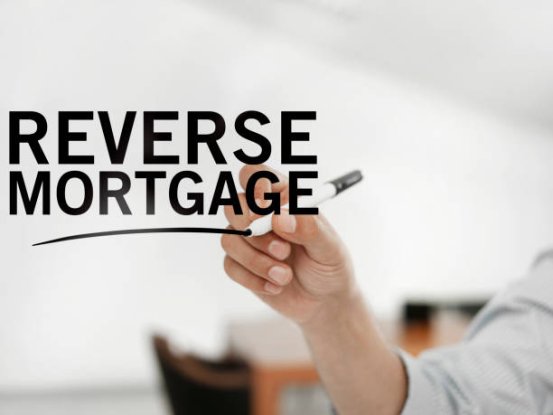The World’s Greatest Places of 2024 – Your Dream Destinations!
What To Do If Your Flight is Cancelled or Delayed? Manage Things Wisely
Top 5 Plants You Should Never Lack For Your Mental Wellness
12 Best IKEA Kitchen Products to Upgrade Your Space
7 Best Mental Health Activities For Kids
10 Fun Mental Health Activities To Boost Your Well-Being
Screen-Free Parenting: Effective Ways to Limit Screen Time and Foster Healthy Habits
9 Fun Thanksgiving Games and Activities: Bringing Laughter to the Holiday!
The Truth About Reverse Mortgages: What You Should Know Before Borrowing
Reverse mortgages offer a way for homeowners to access their home equity without selling or moving. While they provide benefits, it’s important to carefully consider both the advantages and risks before deciding to proceed.
Reverse mortgages offer a way for homeowners to access their home equity without selling or moving. While they provide benefits, it’s important to carefully consider both the advantages and risks before deciding to proceed.

What is a Reverse Mortgage?
A reverse mortgage enables homeowners aged 55 or older to convert part of their home equity into loan proceeds without having to sell the property. Unlike traditional mortgages, borrowers do not make monthly payments. Instead, the loan is repaid when the homeowner sells the house, moves out permanently, or passes away. This option is popular among retirees seeking additional income but involves significant costs and risks.
How Reverse Mortgages Work
Essentially, a reverse mortgage converts a portion of your home’s equity into cash, which can be received as a lump sum, monthly payments, or a line of credit. These funds are tax-free, and repayment is deferred until the home is sold or vacated. The loan amount depends on the home's value, the borrower’s age, and current interest rates. In Canada, the most common reverse mortgage product is HomeEquity Bank’s "HELOC for Seniors," with some alternatives offered by other lenders.
Types of Reverse Mortgages
Reverse mortgage options in Canada are less varied than in the U.S. The main providers are:
-
HomeEquity Bank (CHIP Reverse Mortgage)
-
Equitable Bank (Reverse Mortgage)
These typically offer disbursement options such as:
-
Lump sum payments
-
Regular installments (monthly, for example)
-
On-demand drawdowns (like a line of credit)
Pros and Cons of Reverse Mortgages
Before taking out a reverse mortgage, it’s crucial to weigh its benefits and drawbacks.
Pros:
-
No Monthly Payments: Borrowers don’t need to make monthly repayments. The loan is repaid upon sale, moving into care, or death.
-
Access to Cash: Provides seniors with a way to unlock home equity without selling.
-
Non-Taxable Income: Funds received are not taxed, making it an efficient income source.
-
Flexible Payment Options: Borrowers can select lump sums, monthly payments, or lines of credit.
Cons:
-
High Fees: Reverse mortgages often carry higher fees and interest rates than other loans.
-
Declining Equity: As interest accrues, the loan balance grows, reducing home equity and potentially inheritance.
-
Impact on Inheritance: If the debt surpasses the home's value, heirs might inherit nothing.
-
Eligibility Limits: Must be at least 55 years old, and the property must meet lender criteria.
Fees Associated with Reverse Mortgages
Common costs include:
-
Origination Fees: Charges for processing the loan, which can vary widely.
-
Interest Rates: Typically higher than traditional mortgages due to no monthly payments.
-
Insurance Fees: Protects lenders if home value is less than the loan at repayment.
-
Closing Costs: Includes appraisal, legal fees, and title insurance.
These expenses should be carefully reviewed before committing.
How Much Can You Borrow?
Loan amounts depend on several factors:
-
Home’s appraised value
-
Homeowner’s age (older borrowers may access more)
-
Current interest rates (higher rates reduce loan amounts)
-
Existing home equity
Generally, borrowers can access 30% to 55% of their home’s value.
Common Issues with Reverse Mortgages
Be aware of potential problems:
-
Increasing Debt: No monthly payments means interest compounds, reducing equity.
-
Effect on Government Benefits: Loan proceeds may impact eligibility for programs like Canada’s Guaranteed Income Supplement. Consult an advisor.
-
Risk of Foreclosure: Failure to pay property taxes, insurance, or maintain the home can lead to foreclosure.
Alternatives to Reverse Mortgages
Consider other options before deciding:
-
Home Equity Line of Credit (HELOC): Often better for those under the age limit with sufficient income, offering lower interest and flexible repayment.
-
Selling Your Home: Downsizing can provide cash without the complexities of a reverse mortgage.
-
Government Programs: Seniors may qualify for pensions, grants, or assistance programs that can supplement income.
Frequently Asked Questions
Q: Can I lose my home with a reverse mortgage?
A: Yes. If loan terms are not met, such as paying property taxes or insurance, the lender can foreclose.
Q: Is the money from a reverse mortgage taxable?
A: No. The funds are not taxable income, but the loan balance grows over time.
Q: How do I know if a reverse mortgage suits me?
A: Consult a financial advisor to assess your financial goals, home equity, and future plans.
References and Sources
https://www.homeequitybank.ca/
https://www.bankrate.com/mortgages/reverse-mortgage-pros-and-cons/
https://www.canada.ca/en/financial-consumer-agency/services/mortgages/reverse-mortgages.html









